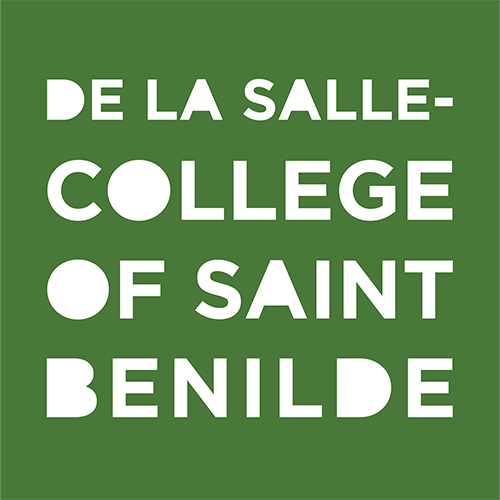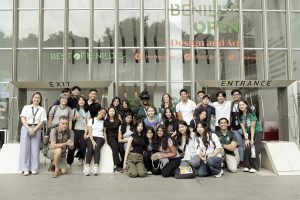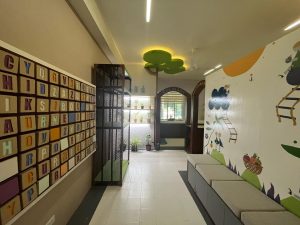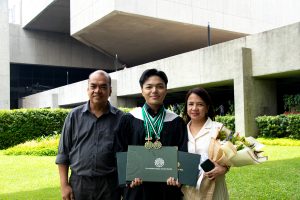Bachelor in Textile Design: Revitalizing the Tapestry of Philippine Textile
De La Salle-College Saint Benilde prides itself on industry-responsive programs that bridge the skill gap between academic training and professional practice and proudly announces the new Bachelor in Textile Design, the country’s first standalone textile program in the Philippines. Offered under Benilde’s School of Environment and Design, its faculty members believe this pioneering program is pivotal in reviving the Philippine Textile industry.
The Bachelor in Textile Design is an option for Senior High School students taking the Arts and Design, and Science, Technology, Engineering, and Mathematics (STEM) strands. These students see technological innovations and creative pursuits as part of their future careers, producing graduates representing and advancing the Philippine textile industry. Practicing professionals who intend to get a degree or art degree holders who plan to take a second, more specialized program are also welcome to enroll.
Although textile is often linked with fashion and clothing because it is the primary raw material of the garment industry, textile applies to various other sectors. Bachelor in Textile Design graduates are qualified to pursue a wide range of careers as designers, innovators, researchers, buyers, and illustrators in various fields such as fashion, interior design, industrial design, architecture, and more.
Graduates are equipped with creative and business skills to work as textile designers and eventually create their own textile studios. They can also work in concept and trend forecasting, in the theatre, and are able to embrace a wide variety of opportunities presented by the global textiles and design industries. The Bachelor in Textile Design program encourages a ‘flexible specialists’ culture with a diverse range of transferable design skills.
The Bachelor in Textile Design will take ten terms to complete, including all electives, capstone/thesis, and OJT program. Students will have access to industry-grade facilities like specific rooms for lectures, computer-aided design and drafting (CADD), sewing, ideation with the material library to start, and the opportunity to explore Museo Negrense De La Salle in Bacolod City. This museum houses the Jose Garcia Montelibano Textile Arts Center, named after the donor’s father, Ms. Mara Montelibano. It is the Philippines’ most extensive international folk textile collection, with over 1000 handmade textiles and other articles from 54 countries.
“The textile sector is one of the most important in terms of social and economic progress,” writes Mitzie Conchada in the Textile-Garment Industry Roadmap 2020-2029 launched by the Department of Trade and Industry’s (DTI) Bureau of Investments (BOI). “Not only does the sector help the economy by creating jobs and exporting goods, but it also helps preserve Filipino culture, which reinforces our sense of national identity. This alone should be sufficient motivation to bring back a once-vibrant industry.” This roadmap envisions a competitive, integrated, and sustainable Philippine textile-garment industry that generates inclusive growth. With Benilde’s Bachelor Textile Design program at the forefront of educational innovation, the future of our country’s textile sector sustained by the younger generation is bright.
For more information on Benilde’s undergraduate programs, contact us at (63) 2 8230 5100 local 1801 or admissions@benilde.edu.ph. You may also visit our website at www.benilde.edu.ph.




